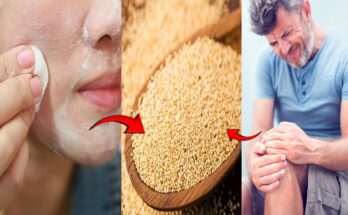Introduction
Importance of Summer Skincare
Summer brings longer days and more outdoor activities, but it also introduces challenges for your skin. The intense sun, heat, and humidity can lead to various skin issues. Therefore, it is crucial to adapt your skincare routine to ensure your skin remains healthy, glowing, and spotless throughout the season.
Common Skin Issues in Summer
During summer, common skin issues include dehydration, sunburn, oily skin, and breakouts. Additionally, increased sun exposure can lead to dark spots and pigmentation. Addressing these concerns proactively can help maintain clear and radiant skin.
Goals for Summer Skincare
The primary goals for summer skincare are to keep the skin hydrated, protect it from UV damage, maintain a clear complexion, and prevent the onset of pigmentation and other sun-related issues.
Understanding Your Skin Type
Identifying Skin Types
Understanding your skin type is essential for tailoring your skincare routine. The main skin types are:
- Normal: Balanced skin with minimal issues.
- Dry: Flaky, rough, and often tight skin.
- Oily: Shiny skin with visible pores and frequent breakouts.
- Combination: A mix of dry and oily areas.
- Sensitive: Easily irritated and prone to redness.
Adapting Routine to Skin Type
Once you identify your skin type, choose products and routines that cater specifically to its needs. For instance, oily skin may benefit from lightweight, oil-free products, while dry skin requires more hydrating and moisturizing formulas.
Essential Skincare Tips
Hydration
Keeping your skin hydrated is vital, especially in summer. Use hydrating serums, moisturizers, and mists to maintain moisture levels. Hyaluronic acid is an excellent ingredient for hydration.
Sun Protection
Sunscreen is non-negotiable. Choose a broad-spectrum sunscreen with at least SPF 30 and reapply every two hours when outdoors. Don’t forget areas like your neck, ears, and hands.
Cleansing
Cleanse your face twice daily to remove sweat, oil, and impurities. Use a gentle, sulfate-free cleanser to avoid stripping your skin of its natural oils.
Exfoliation
Exfoliate your skin 1-2 times a week to remove dead skin cells and prevent clogged pores. Opt for gentle exfoliants to avoid irritation.
Hydration Tips
Importance of Hydration
Hydration keeps your skin plump and smooth. Dehydrated skin can appear dull and be more prone to fine lines and wrinkles.
Hydrating Products
Incorporate hydrating products such as serums with hyaluronic acid, lightweight moisturizers, and hydrating face mists into your daily routine.
Internal Hydration
Drink plenty of water throughout the day. Incorporate hydrating foods like cucumbers, watermelon, and oranges into your diet to help maintain hydration levels from within.
Sun Protection Tips
Choosing the Right Sunscreen
Select a broad-spectrum sunscreen with at least SPF 30. For prolonged outdoor activities, opt for water-resistant formulas.
Application Tips
Apply sunscreen generously 15-30 minutes before sun exposure. Reapply every two hours, or more often if swimming or sweating.
Protective Clothing and Accessories
Wear wide-brimmed hats, sunglasses, and lightweight, long-sleeved clothing for added protection against the sun’s harmful rays.
Cleansing Tips
Daily Cleansing Routine
Cleanse your face every morning and evening. Use a gentle cleanser that suits your skin type to remove dirt, oil, and impurities.
Choosing the Right Cleanser
For oily skin, use a foaming or gel-based cleanser. For dry skin, opt for a creamy or hydrating cleanser. Sensitive skin benefits from fragrance-free and hypoallergenic products.
Removing Makeup
Always remove makeup before bed to prevent clogged pores and breakouts. Use a gentle makeup remover or micellar water followed by your regular cleanser.
Exfoliation Tips
Benefits of Exfoliation
Exfoliation removes dead skin cells, improves skin texture, and enhances the absorption of skincare products. It also helps prevent breakouts and promotes a brighter complexion.
Types of Exfoliants
Choose between physical exfoliants (scrubs) and chemical exfoliants (AHAs, BHAs). Chemical exfoliants are often gentler and more effective for consistent use.
How Often to Exfoliate
Exfoliate 1-2 times a week, depending on your skin type and sensitivity. Over-exfoliating can lead to irritation and damage.
Specialized Treatments
Face Masks
Use hydrating and soothing face masks once or twice a week. Ingredients like aloe vera, honey, and hyaluronic acid are excellent for summer skin.
Serums and Treatments
Incorporate serums with antioxidants like vitamin C to protect against free radical damage. Use treatments targeting specific concerns such as dark spots or acne.
Professional Treatments
Consider professional treatments like facials, chemical peels, or laser therapy for more intensive care and to address specific skin concerns effectively.
Diet and Nutrition
Foods for Healthy Skin
Consume a balanced diet rich in fruits, vegetables, lean proteins, and healthy fats. Foods high in antioxidants, such as berries and leafy greens, can promote healthier skin.
Importance of Vitamins and Minerals
Vitamins A, C, and E are crucial for skin health. Ensure your diet includes foods rich in these vitamins or consider supplements if necessary.
Hydration through Diet
Incorporate water-rich foods like cucumbers, watermelon, and oranges to help keep your skin hydrated and glowing from within.
Lifestyle Tips
Importance of Sleep
Adequate sleep is essential for skin repair and regeneration. Aim for 7-9 hours of quality sleep each night.
Managing Stress
High stress levels can lead to skin issues like acne and dullness. Practice stress management techniques such as yoga, meditation, and deep breathing exercises.
Physical Activity
Regular exercise improves blood circulation, which helps nourish skin cells and keep them healthy. Aim for at least 30 minutes of physical activity most days.
Natural Remedies
DIY Face Masks
Create DIY face masks using natural ingredients like yogurt, honey, and oatmeal. These can provide hydration, soothing, and gentle exfoliation.
Home Remedies for Common Issues
Use natural remedies for sunburn, such as aloe vera gel and cool compresses. For acne, try tea tree oil or a honey and cinnamon mask.
Conclusion
Summary of Key Points
Achieving glowing and spotless summer skin involves proper hydration, sun protection, cleansing, exfoliation, and a healthy lifestyle. Tailoring your skincare routine to your skin type and addressing specific summer challenges is essential.
Encouragement for Consistency
Consistency is key to maintaining healthy skin. Stick to your skincare routine, make healthy lifestyle choices, and stay hydrated to enjoy radiant skin all summer long.
Final Thoughts on Glowing Summer Skin
With the right approach and dedication, you can achieve and maintain glowing, spotless skin throughout the summer. Embrace these tips and enjoy the confidence that comes with healthy, radiant skin.






